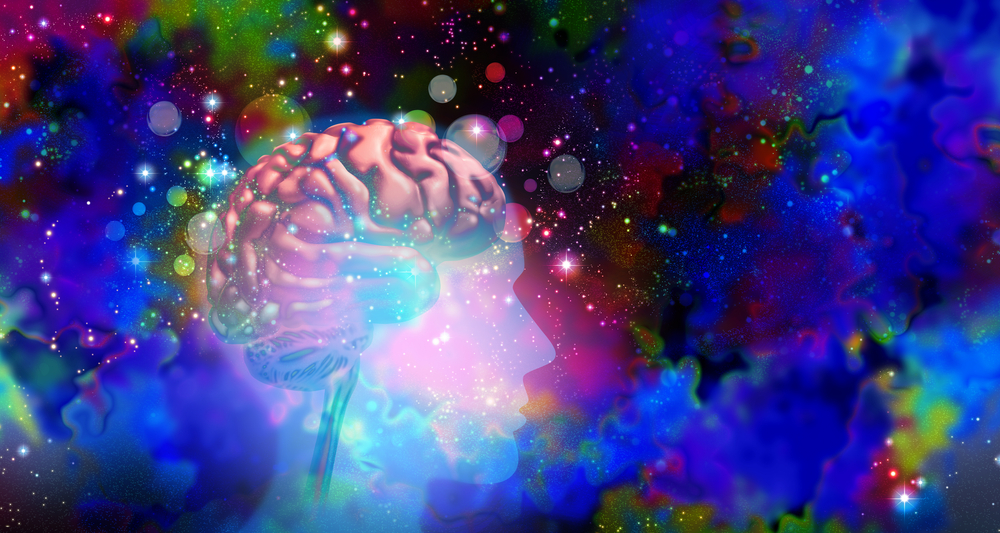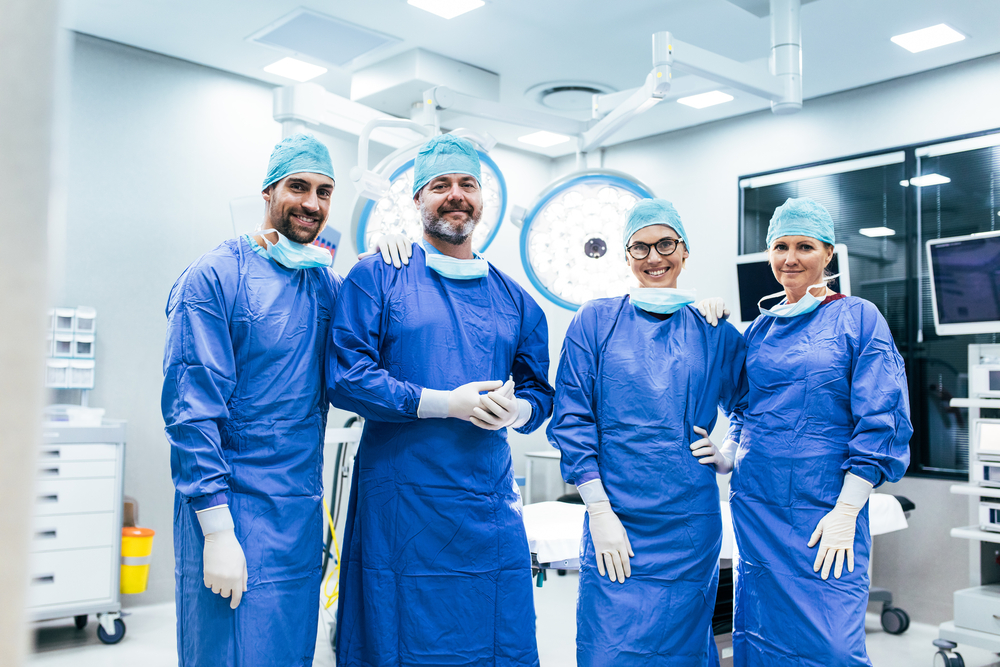Imagine being the person everyone turns to in their darkest hours, expected to remain calm, composed, and capable—no matter the cost to your own well-being. Now imagine the toll of carrying that weight every single day, without pause, and with little room to ask for help. For many medical professionals, this is reality.
Burnout, depression, and emotional exhaustion have surged among healthcare workers, with recent surveys revealing alarmingly high rates of mental health issues in the field. Over 40% report feeling “overwhelming distress,” while others quietly battle anxiety and even suicidal thoughts. Yet, the stigma of seeking help keeps these silent warriors locked in an endless cycle of suffering.
Desperate for relief and open to alternatives, some have turned to an unconventional—and controversial—path: psychedelics. Once dismissed as a countercultural curiosity, substances like psilocybin and ketamine are now being hailed as breakthroughs in mental health treatment. But why are medical professionals, armed with traditional knowledge of healing, choosing to embrace something so unconventional?

The Silent Struggle of Medical Professionals
Healthcare workers are often celebrated as heroes, yet the weight of their work often goes unspoken. The long hours, life-or-death decisions, and constant emotional strain take a toll that few outside the field truly understand. These challenges have been brewing for decades, but the COVID-19 pandemic brought them to a breaking point, exposing the mental health crisis lurking behind the facade of resilience. For many healthcare professionals, the pandemic wasn’t just a public health emergency—it was a personal reckoning with their own mental limits.
The statistics are sobering. Over half of healthcare workers report symptoms of anxiety or depression, and nearly 20% admit to having suicidal thoughts. Yet, seeking help often feels impossible. A deep-rooted stigma surrounds mental health struggles in the medical field, with fears of being seen as weak or unfit discouraging many from speaking out. This culture of silence leaves countless professionals suffering in isolation, unable to access the care they desperately need.
Over time, this suppression erodes their well-being and their ability to care for others. Desperate for relief and disillusioned with conventional options, some have turned to an unlikely avenue: psychedelics. Once dismissed as fringe substances, these therapies are emerging as a beacon of hope for those in crisis.
The Psychedelic Renaissance
Once relegated to the counterculture of the 1960s, psychedelics like psilocybin, MDMA, and ketamine are now at the forefront of a mental health revolution. Modern research has shed light on their potential to treat conditions like depression, anxiety, PTSD, and more. Far from their past reputation as recreational substances, these compounds are now being studied in clinical settings with promising results. For individuals grappling with treatment-resistant depression, psychedelics have offered a lifeline where conventional therapies have failed.
At the heart of their therapeutic potential lies their ability to alter brain activity and promote neuroplasticity—the brain’s capacity to rewire itself. Psychedelics interact with serotonin receptors, encouraging profound emotional breakthroughs and helping patients process buried trauma. Unlike traditional antidepressants, which often take weeks to work, psychedelics can lead to noticeable improvements after just one or two sessions, particularly when used in a guided therapeutic context.
The growing body of research has been impossible to ignore. Clinical trials led by institutions like Johns Hopkins and Imperial College London have demonstrated significant reductions in depression and anxiety symptoms in patients who underwent psychedelic-assisted therapy. As these studies gain traction, they challenge long-standing stigmas and open the door to broader acceptance of psychedelics as legitimate mental health tools. For medical professionals searching for relief, these treatments represent not just hope but a paradigm shift in how healing can occur.

Why Medical Professionals Are Turning to Psychedelics
For healthcare workers, the decision to explore psychedelics often stems from a mix of desperation and informed curiosity. As individuals deeply familiar with the limits of conventional treatments, they are uniquely positioned to recognize when traditional therapies fall short. Burned out and battling conditions like depression or PTSD, many find themselves seeking alternatives that address the root causes of their struggles rather than simply masking symptoms.
Psychedelics offer a distinctly different approach. Unlike antidepressants, which can take weeks to show limited effects, psychedelic therapy has been reported to deliver profound emotional breakthroughs within just a few sessions. These experiences, often described as deeply introspective and transformative, allow users to confront suppressed trauma or reframe persistent negative thought patterns. For medical professionals accustomed to scientific rigor, the growing body of evidence supporting psychedelics’ efficacy provides a compelling reason to try what might otherwise seem unorthodox.
Stories from medical professionals highlight this shift. One physician, after years of battling severe depression, described their guided psilocybin session as “unlocking a door they didn’t know existed.” Another reported that ketamine therapy helped them reclaim a sense of hope and purpose they thought had been lost forever. For many, the experience doesn’t just alleviate their mental health struggles—it reignites their ability to connect with patients and approach their work with renewed empathy and compassion.
A Call for Change in the System
The growing acceptance of psychedelics as a legitimate treatment option signals the need for a broader transformation in how we approach mental health care—especially for healthcare professionals. The mental health struggles faced by those in the medical field are not just individual battles; they are symptoms of a system that prioritizes performance over well-being. Addressing these issues requires systemic reform that goes beyond providing temporary solutions.
Integrating psychedelics into mainstream care for medical professionals could be a crucial step forward. However, this would necessitate rigorous regulation, robust training for therapists, and the creation of safe, supportive environments for treatment. Beyond the clinical applications, there is a need for healthcare systems to foster a culture where seeking mental health support is not stigmatized but encouraged. Normalizing mental health care as an essential aspect of a professional’s well-being could prevent burnout before it escalates.
Ultimately, the psychedelic movement is not just about the substances themselves; it is about redefining how we view healing. For medical professionals, who are often seen as invincible, embracing innovative treatments like psychedelics could pave the way for a more compassionate and human-centered approach to medicine. This shift could benefit not only those who care for others but also the countless lives they touch every day.
Personal Experiences of Medical Professionals with Psychedelic Therapy
Medical professionals who have turned to psychedelic therapy often describe the experience as transformative, both personally and professionally. Many enter these therapies feeling depleted, disconnected, and overwhelmed by the pressures of their work. Psychedelics, when administered in a controlled, therapeutic setting, have provided these individuals with a space to process deep-seated emotional pain and confront personal challenges that they may have suppressed for years.
A common theme among these stories is the profound sense of clarity and emotional release they experience during and after their sessions. Some describe it as “unlocking a door they didn’t know existed,” allowing them to view their struggles from a new perspective and develop a deeper understanding of themselves. This clarity not only alleviates their mental health burdens but also enhances their ability to connect with their patients. Many report a renewed sense of empathy and compassion, which improves their practice and allows them to engage more meaningfully with the people they care for.
For these professionals, psychedelic therapy is more than just a mental health intervention—it is a catalyst for rediscovering purpose and emotional resilience. Their personal experiences underscore the growing recognition that these therapies can have ripple effects, improving not only individual well-being but also the quality of care they provide to others.
Breaking the Stigma, Embracing New Horizons
The rise of psychedelics in mental health treatment marks a pivotal moment in medicine, especially for medical professionals who have long been burdened by the silent weight of their struggles. These therapies offer more than just relief—they represent a fundamental shift in how we perceive healing, emphasizing emotional transformation, self-discovery, and profound personal growth. For those who have walked this path, the journey is often described as life-changing, allowing them to reclaim not only their mental health but also their sense of purpose and connection to others.
Yet, significant barriers remain. The stigma surrounding both mental health and psychedelics continues to hinder progress, leaving many hesitant to explore these treatments openly. Addressing these challenges requires collective action—from policymakers enabling safe access to researchers advancing our understanding, and from institutions fostering supportive environments to individuals advocating for their own healing journeys. It’s a call for systemic change, one that prioritizes compassion over convention and redefines the norms of care.
As we look ahead, the integration of psychedelics into mainstream mental health care offers a glimmer of hope, not just for medical professionals but for society at large. By embracing these innovative therapies and breaking free from outdated stigmas, we can create a world where healing is as dynamic, diverse, and transformative as the people seeking it. The question remains: Are we ready to open the door to these new horizons and rethink how we define true healing?


